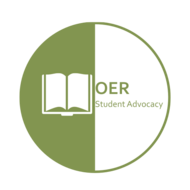
(View Complete Item Description)
This toolkit was created by OER student leaders in the CCC and CSU systems. The toolkit's purpose is to motivate students to get involved in OER advocacy and the Open Education movement, as well as make it known that students can make a difference in their education. Education costs can be cut to a fraction of the price with OER, which would allow for more students to be able to access knowledge and higher education. While this toolkit contains some examples and suggestions specific to California institutions, it can still be helpful for all college students. Thanks to the Michelson 20MM Foundation's financial support students were paid for their work and contributions in creating this document, as well as presenting at conferences.
Material Type:
Full Course,
Primary Source,
Reading,
Student Guide
Authors:
Barbara Illowsky,
Ryan Erickson-Kulas,
Jenifer Vang,
Trudi Radtke,
Natalie Miller,
Timothy Maldonado,
Ashley Chavez,
Carlos Espinoza,
Laura Cruz,
Kelsey Smith,
Edwin Hernandez Armenta




